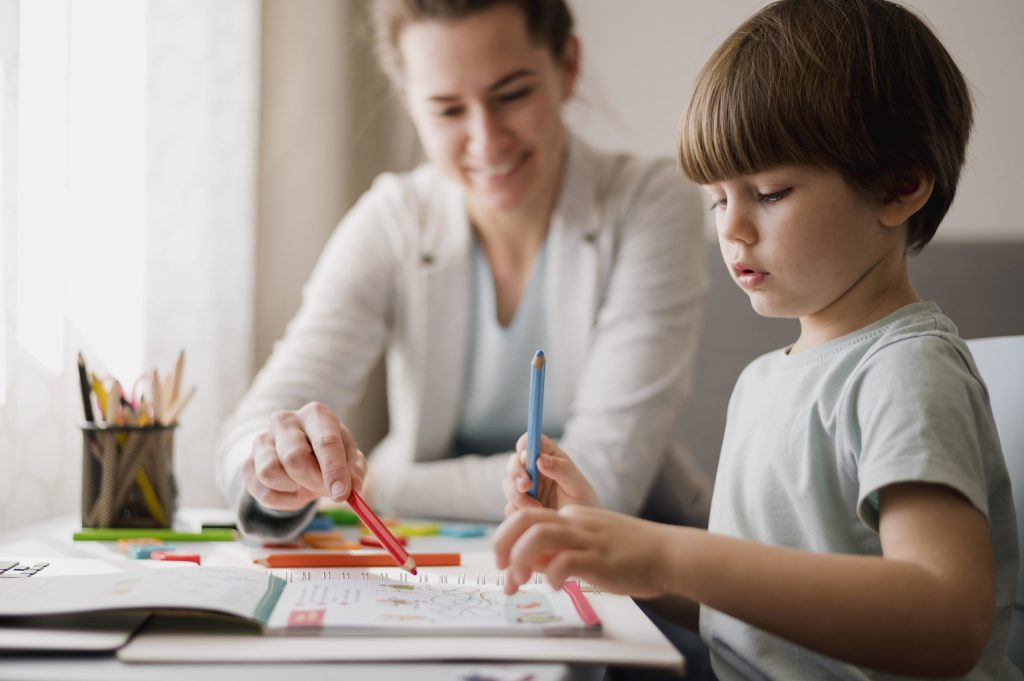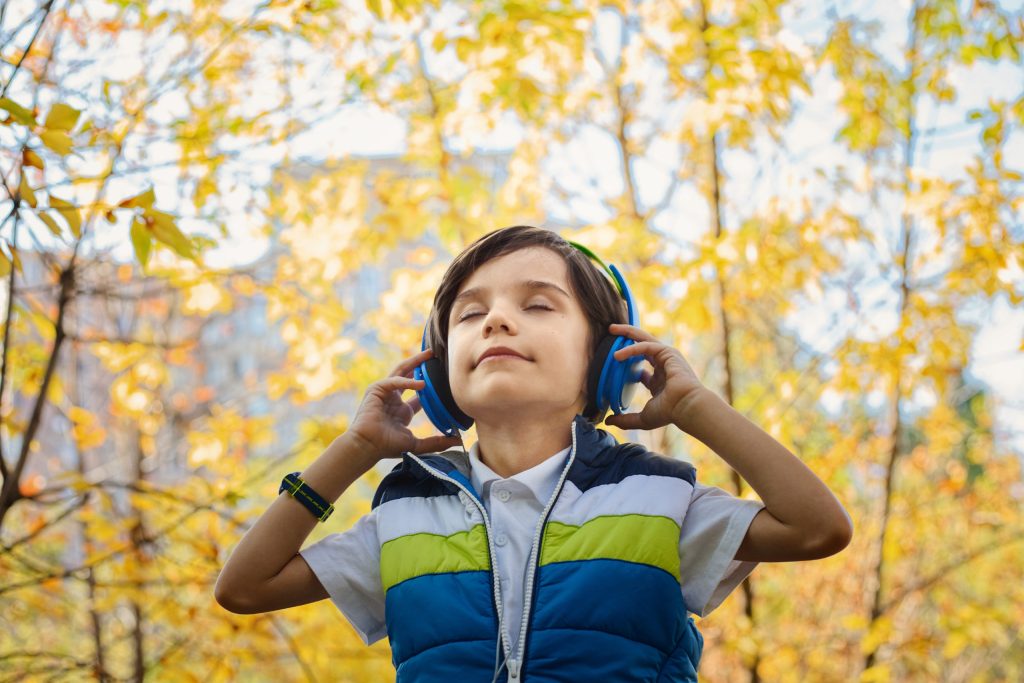Going back to school: our top tips
7th September, 2020
Drum roll! It’s here! It’s time.
New school shoes queued for, school uniform labelled, new school backpack bought, pencil case contents sorted, school lunches ordered, checking school parent mail– yikes, school starts when??!, hunt for school library books underway, countdown of sleeps until school starts, squaring up to parental relief or dread that the holidays are over, working out how many weeks until half term…
…pretty much what parents prepare for every September. Back to school for our children and a return to our own “back to school” lives and routines. Parental expectations and hopes remain unchanged year on year – for our children to be happy, safe, nurtured, supported, settled and thriving, for them to enjoy and be excited by their school learning, challenges and adventures.
But, of course Back to School is not quite the same this September for anyone. The last 5 months of Covid-19 have made school and family life very different; physically, emotionally, socially, and of course academically. Every parent, child and member of the school staff will have had their individual experiences, feelings and emotions, highs and lows (including major loss and trauma for some, which needs to be addressed in more detail than in this blog). For many of us life still feels unsettled and uncertain, impacting on our emotions, stress, and coping mechanisms.
Back to School always feels somewhat unsettling, with change and fresh starts. So, the annual Back to School tummy butterflies are here again, whatever the new routines. They are always mixed ones of excitement or apprehension for children. For parents, the butterflies may be more like full on box of frogs – will their teacher “get” their child, will they make new friends, will they ever remember to bring their jumper home, will they ever learn their 3’s …
As always in this first term, teachers will focus on new starts and transition. However, it will be part of whole school very robust “recovery” planning to support the social, emotional and mental wellbeing of all children as well as their academic catch up in the light of these Covid-19 months. Calmness, kindness and encouragement for all aspects of learning will be key rather than academic pressure in this return to school. All welcome and reassuring moves for parents of children returning to school, particularly for the first time since March, changing schools or littlies just beginning nursery or Big School without the usual visits and getting to know their teachers.
So, how can we help to make this Back to School September 2020 as positive as possible for children and parents alike?
Routine, routine, routine
Make consistency and predictability key. Make sure bedtimes routines are a little earlier and not fraught, meals are at set times and super healthy and there is plenty of fresh air and exercise and playing outside. Limit technology. Practice any journeys to school.
Children will be expecting school rule settings – do the same at home. Be a step ahead and make visual timetable for school week and structure so it’s clear to see when things are happening. It’s a great opportunity to start as you mean to go on with getting up and dressed, tech/tablet time, homework, clubs, playdays, meal times, bed times. Perhaps use it to review your routines – children get ready faster without TV or tablets if they know they can have a few minutes of either if they are dressed/teeth brushed/breakfasted first. Get the children helping to set out clothes the night before, get school bags ready.
Give plenty of calm reassurance about school routines or changes to routines before they go back to school and going forwards. Teachers and everyone will be learning all the new class rules and school rules together with lots of practice, so no one will in trouble for forgetting about, for instance, where to line up. Be pragmatic about new routines or any changes to come in case there are incidents of quarantine or second waves. Remind them that sometimes rules change and it’s sometimes annoying or inconvenient but there is always a good reason. Use school facts and children’s news to help explain Covid-19 issues honestly but adult news headlines can be frightening for children – they need a calm, “take it in your stride” attitude so keep serious discussion for adult time.

Positivity, Positivity, Positivity
Be enthusiastic, positive and generous about school – learning, environment and staff. Take an interest and enjoy talking about school or learning when you can. Remembering that lots of children don’t want to talk when they first come out of school, can’t remember what they have been learning and only enjoyed break! Leave pressurising academic talk out! Do a bit of reverse psychology when they are more ready – talk about your day and tell them something really positive from it then ask them to share a positive from their day or something they have enjoyed.
Make it a priority to investigate new topics with children so they feel confident and happy and can contribute. Help by focusing on their strengths, areas of interest and enjoyment of learning with lots of encouragement and appropriate praise. Stick to your routines about daily reading and homework and be guided by school about any difficulties, particularly SEN needs.
Think about specific pre-learning or consolidating learning to support areas of learning difficulty – this is where really good extra support can pay dividends – preferably not a parent so a tutor, family support, grandparents or relative.

Calm, calm, calm
Back to School this year will inevitably see increased anxiety and worries for some children for so many reasons – trauma, loss, being out of school/new to school, new class, new teacher, leaving parents or siblings, leaving treasured teddy or dinosaur, friendships, topics, learning difficulties, not wanting things to change, new routines or changes, generally being unsettled about the current Covid-19 situation.
Tell-tale signs before starting school and going forward are generally easy to spot – being very vocal, crying, bed wetting/accidents, shouting, refusals to follow instructions, hitting out, silence, hiding, not wanting to go to sleep or to eat properly, not wanting to separate, reverting to more childish routines like thumb sucking or talking in baby talk. Make time to really listen and talk properly and be prepared to help with emotion words like sad, angry, wobbly, worried, lonely, cared. “I am wondering if you are feeling…” is a good starter. Remember this is the child’s perspective and their feelings/emotions, not yours. Don’t diminish or dismiss fears. Listen and reflect back what they are saying so you act as a sounding board for them. Help give some perspective so worries appear less huge and can be tackled and solved. Help them with step by step visual or oral steps and give rewards/praise for each step to help them see achievements.
A little worry box works or a set time to talk through worries works well. So does a positive diary highlighting 3 positives from the day and a positive to look forward to the next day, particularly for night time worriers.
Some useful resources:
- The Huge Bag of Worries – Virginia Ironside
- Ruby’s Worry – Tom Percival
- There’s a Volcano in My Tummy – Elaine Whitehouse
- The Opposite of Worry – Lawrence Cohen (for Parents)
- Lucy and Tom Go to School – Shirley Hughes
- Starting School – Ahlbergs
- The Starting School Book – Sarah Ockwell-Smith (for parents)
- Coronavirus back to school guide
- A film and tips on returning to school
- Information on school bubbles
Liaising with teachers about concerns is essential. An emotional temperature check during the day, rearranged seating, new working partners or specific strategies work wonders. Let your child have a photo of their treasured Teddy in their school bag or the teacher can have on the desk/wall. Teachers should have helpful fidget/calming aids in class to support anxiety or concentration. Find out how regular communication with teachers can take place with new regulations and don’t be afraid at ask for support or feedback.
Balance, Balance, Balance
Normalise school and family life as they intermesh. Continue to focus on the positives across the week with things to look forward to – an activity, an outing, a family film, extra cuddle time. Build on any positives from these last few months so keep up any fabulous new family routines like a family walk or adding to the family scrap book. Explore online opportunities like kids’ yoga or clubs. Go outside and collect conkers for counting games. Keep a manageable balance – this includes homework which needs to be appropriately timed.
Keep an eye on friendships – social worries or difficulties are the number one factor for causing unhappiness at school at any age. Continue to arrange playdates, social events, zooms. Help support new friendships and continue to encourage clubs and new activities to support interests.
Look after each other and look after yourself. Look after your friends and neighbours. And of course, make sure you look after your stress levels and seek support and help where appropriate.
Above all and as ever, keep your own family unit a healthy, happy, kind and balanced one. Make quality time after school whether it’s talk time, mealtime, cuddle time, reading or playing. Make bedtime stories sacrosanct. Above all, keep communicating, keep encouraging, keep praising, keep up all the laughter and fun!